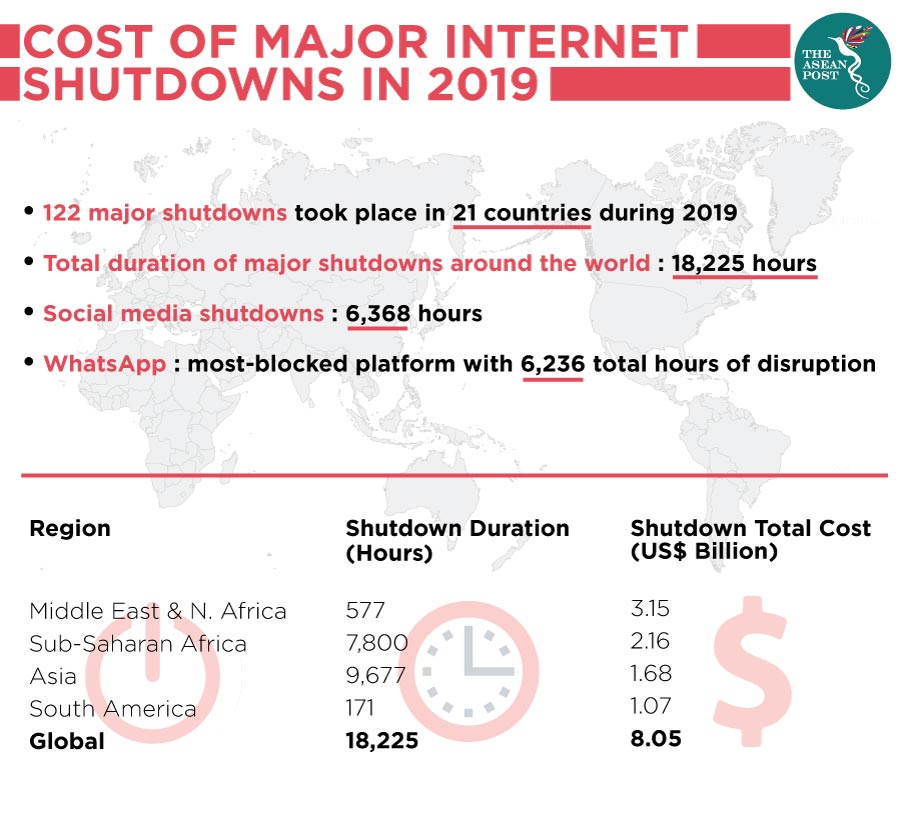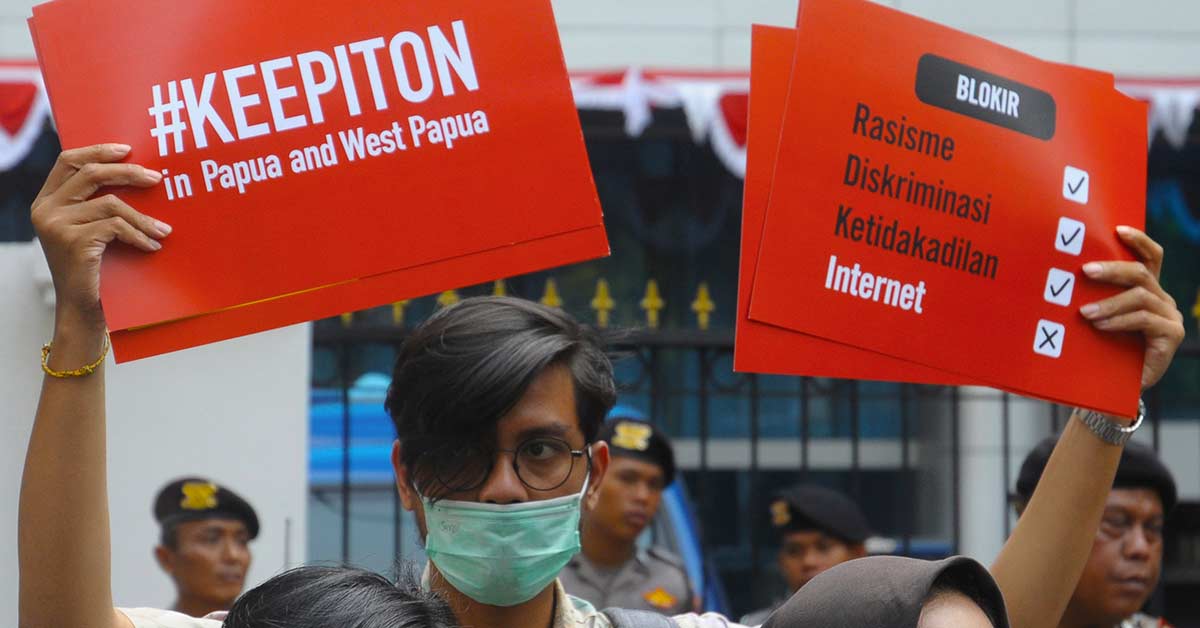The ASEAN Post recently ran a story on the world’s longest internet shutdown in the northern part of Rakhine State in Myanmar and the concept of digital rights as a legitimate human right. The article cited reports by Access Now and Freedom House which both indicate an accelerating increase in the number of internet shutdowns and censorship by governments, especially in Asia.
Top10VPN, a thought leader on Virtual Private Network (VPN) and digital privacy, recently reported that internet shutdowns in 2019 had a global economic cost of US$8.05 billion, a 235% increase since 2015/16.
“Internet shutdowns hurt the entire economy; from small businesses to large multinational banks. As the digital economy continues to grow, the costs of internet shutdowns continue to worsen. Internet shutdowns represent a significant act of economic self-harm,” Samuel Woodhams, Global Digital Rights Lead at Top10VPN told The ASEAN Post.
“Through highlighting the economic impact of internet shutdowns, we hope that governments will be less inclined to implement this counterproductive measure. Additionally, internet shutdowns represent a flagrant disregard for fundamental human rights, including the right to freedom of expression and right to information, which are universal and inalienable,” he added.
There is a persisting trend by authoritarian governments to use an internet shutdown as a tool for control during times of social unrest or elections.
The cost of internet shutdowns and social media shutdowns in Rakhine (Myanmar) and Papua (Indonesia) have cost the governments there US$75.2 million and US$187.7 million, respectively. Due to larger populations and economic activity, Indonesia suffered more than twice the loss for 416 hours of shutdown time compared to Rakhine at 4,880 hours and counting.

Can citizens regain their rights?
The most notable shutdown in Indonesia was during the May 2019 presidential elections in which the government enforced a 78-hour social media shutdown across Indonesia, after riots erupted in Jakarta.
However, those most affected by the shutdown were from Papua and West Papua. The region poses a serious threat to the government, which has systematically supressed separatist movements demanding independence from Indonesia.
To combat the increasing violation of citizens' right to information, freedom of expression and right to disseminate information, a coalition movement #KeepItOn was created.
#KeepItOn comprises over 200 organisations from 70 countries that have adopted different approaches to create awareness of internet shutdowns, hold governments liable for the violations, or reconnect areas or regions affected by providing helplines and other support systems.
Access Now reported that aside from depriving individual rights, some analysis found that government shutdowns were enforced during protests in order to unleash violence on citizens. In Sudan for example, during an 11-day shutdown, 60 protesters were killed while hundreds of protesters were arrested.
“Studies have shown that rather than reducing the level of violence, internet shutdowns can lead to greater disturbance,” explained Woodhams.
While it is clear that the same frameworks that have been established to protect citizens' fundamental human rights also apply online, very few legal actions are taken. While some success has been achieved in India – limiting shutdowns – the practice has not been abolished yet.
Under the Declaration of Human Rights endorsed by the United Nations Human Rights Council (UNHRC), an internet shutdown is unconstitutional.
With the Rohingya reduced to statelessness, there is little hope for the marginalised in Myanmar to confront their government. Papuans on the other hand face a long road ahead in organising themselves and building the capacity to protect their rights through legal means.
In a challenging global economy, Indonesia cannot afford the cost of internet shutdowns. Indonesians have the right to question their government’s actions; especially if these actions could have a detrimental effect on the overall economy, not to mention a ripple effect on other ASEAN countries.
In a region that’s fast going digital, the financial costs associated with internet shutdowns could also deter investors from entering Indonesia and Myanmar.
Related articles:
